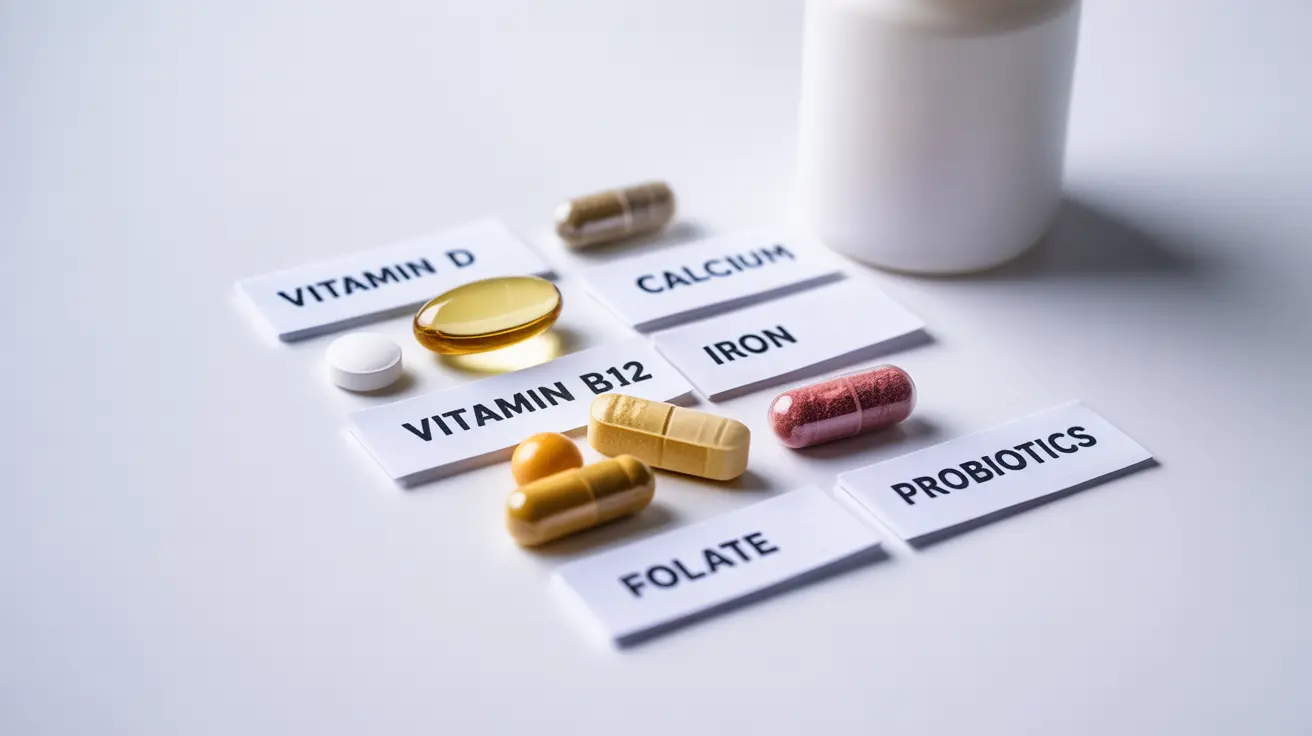Living with ulcerative colitis (UC) can make it challenging to maintain proper nutrition due to inflammation, dietary restrictions, and potential malabsorption issues. Understanding which supplements can help manage symptoms and prevent nutritional deficiencies is crucial for people with this inflammatory bowel disease.
This comprehensive guide explores the most beneficial supplements for ulcerative colitis, their roles in managing symptoms, and how to incorporate them safely into your treatment plan under medical supervision.
Key Nutritional Supplements for Ulcerative Colitis
Vitamin D and Calcium
People with ulcerative colitis often struggle with vitamin D deficiency, particularly if they're taking corticosteroids. Adequate vitamin D levels are essential for:
- Bone health maintenance
- Immune system regulation
- Reduction of inflammation
- Enhanced calcium absorption
Calcium supplementation is equally important, as UC patients may have an increased risk of osteoporosis due to medication side effects and potential malabsorption issues.
Probiotics and Gut Health
Probiotic supplements can play a crucial role in managing UC symptoms by:
- Promoting beneficial gut bacteria growth
- Reducing inflammation in the digestive tract
- Supporting immune system function
- Helping maintain remission periods
Look for probiotics specifically studied for UC, such as VSL#3 or specific strains like Lactobacillus and Bifidobacterium species.
Essential Vitamins and Minerals
Other important supplements for ulcerative colitis patients include:
- Vitamin B12 for energy and nerve function
- Folate to prevent anemia
- Iron to combat potential iron-deficiency anemia
- Zinc for immune support and wound healing
- Omega-3 fatty acids for inflammation reduction
Safety Considerations and Implementation
Working with Healthcare Providers
Before starting any supplement regimen, it's crucial to:
- Consult with your gastroenterologist
- Get baseline blood tests to identify specific deficiencies
- Discuss potential interactions with medications
- Create a personalized supplementation plan
Monitoring and Adjusting
Regular monitoring helps ensure supplement effectiveness and safety:
- Schedule periodic blood tests
- Track symptom changes
- Adjust dosages as needed
- Report any adverse effects promptly
Frequently Asked Questions
What supplements are commonly recommended to manage ulcerative colitis and prevent nutrient deficiencies?
Common supplements for UC include vitamin D, calcium, iron, B12, folate, zinc, and probiotics. These help address specific deficiencies and support overall digestive health while managing inflammation.
How can probiotics help reduce symptoms and inflammation in ulcerative colitis?
Probiotics help by restoring beneficial gut bacteria, strengthening the intestinal barrier, reducing inflammation, and supporting immune function. They may also help maintain longer periods of remission in UC patients.
Why is vitamin D and calcium supplementation important for people with ulcerative colitis?
Vitamin D and calcium are crucial for bone health, especially since UC patients may have increased risk of osteoporosis due to medications and malabsorption. Vitamin D also helps regulate immune function and reduce inflammation.
Are there any risks or side effects associated with taking supplements for ulcerative colitis?
Some supplements can interact with UC medications or cause side effects like nausea or digestive discomfort. High doses of certain supplements might worsen symptoms or create new health concerns, making medical supervision essential.
How should I work with my healthcare provider to safely incorporate supplements into my ulcerative colitis treatment plan?
Work closely with your healthcare provider to determine specific nutritional needs through blood tests, discuss potential interactions with current medications, and create a personalized supplementation plan. Regular monitoring and adjustments ensure safety and effectiveness.
Remember that supplements should complement, not replace, conventional UC treatments and a balanced diet. Always inform your healthcare team about any supplements you're considering or currently taking.




